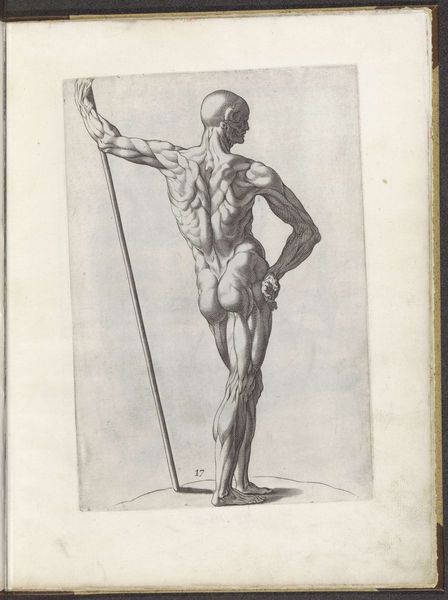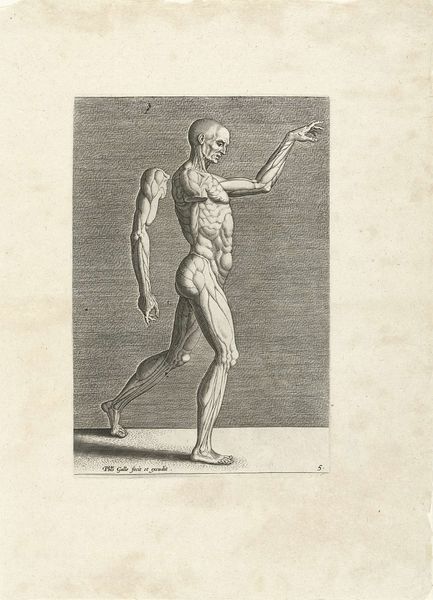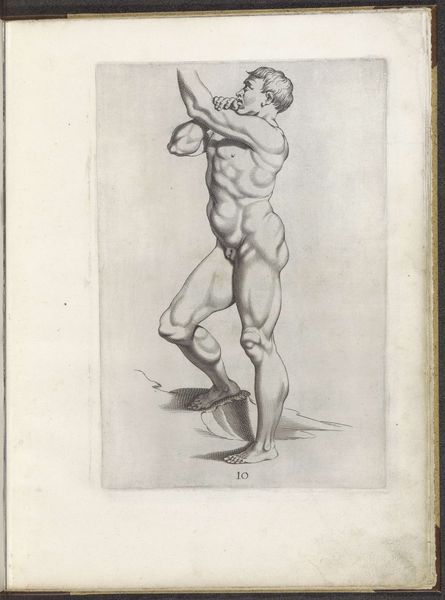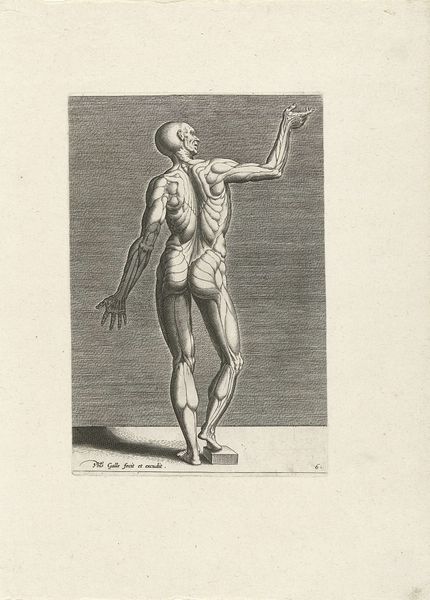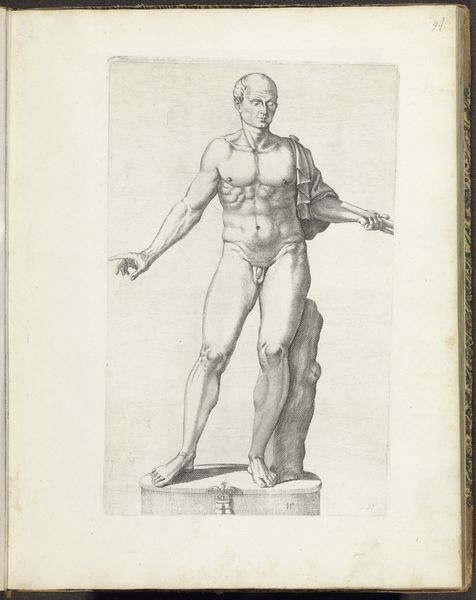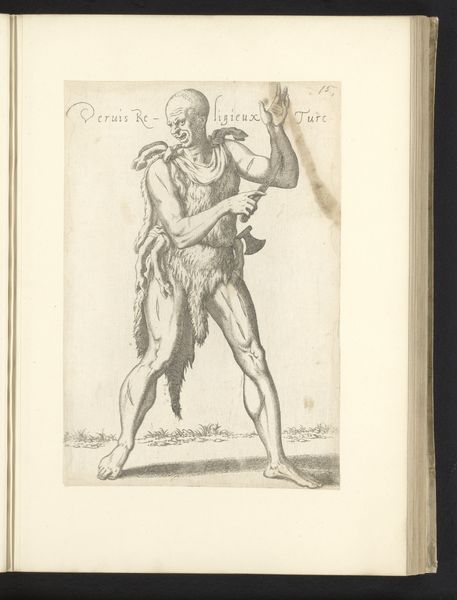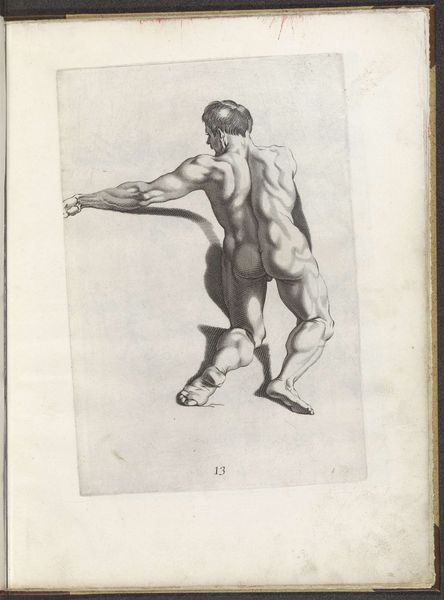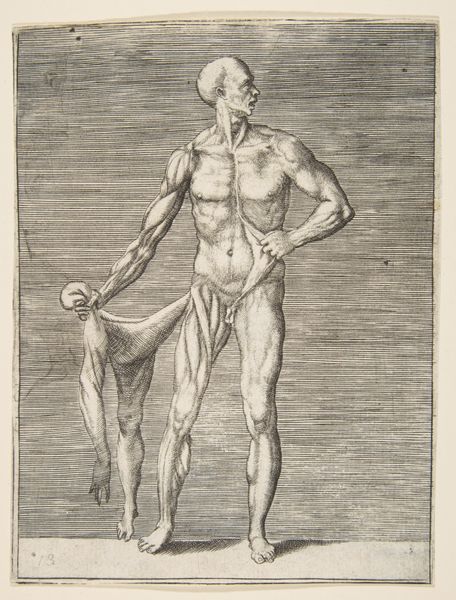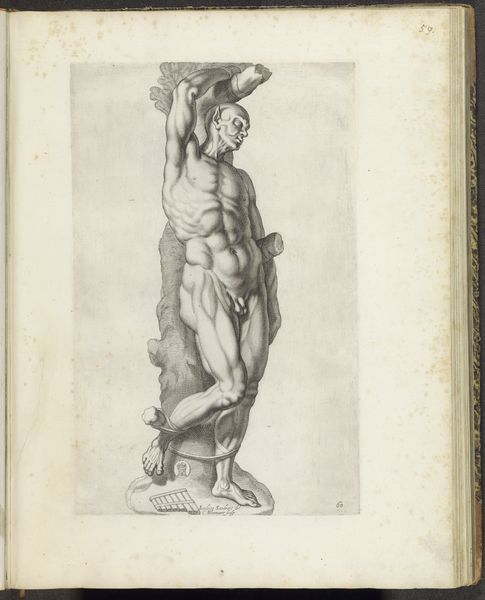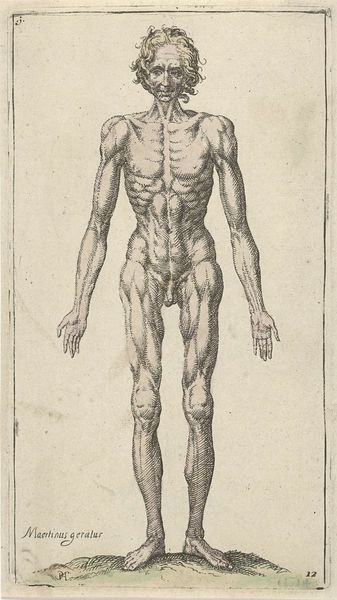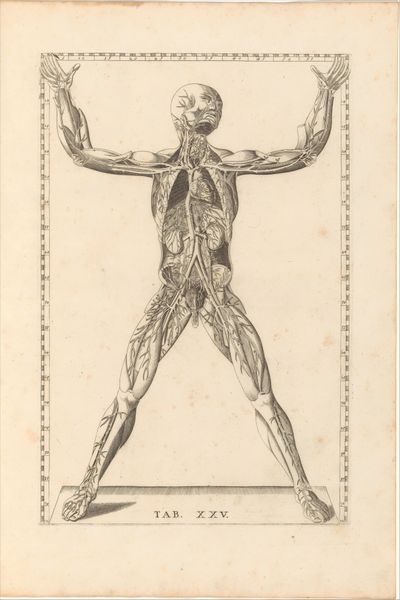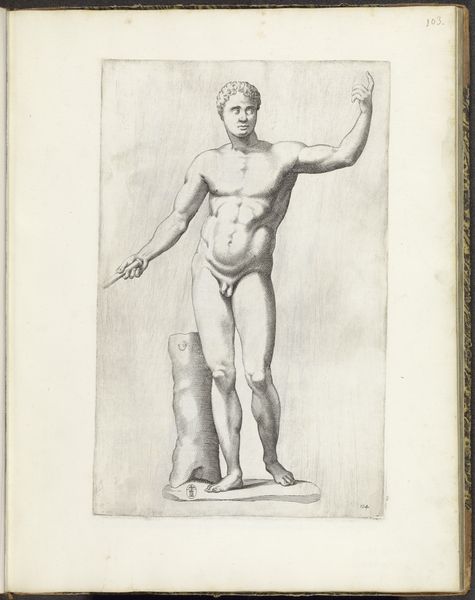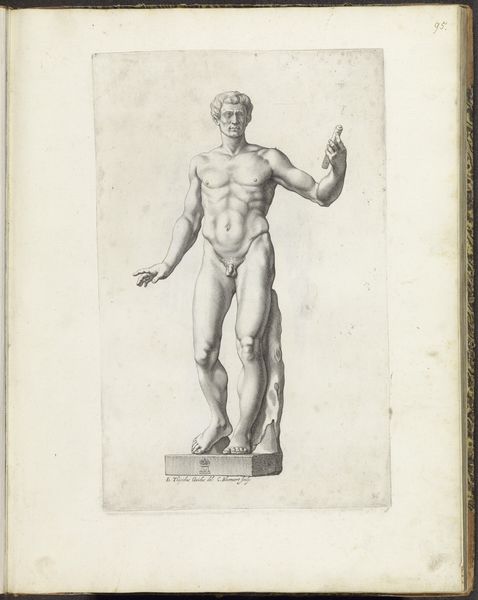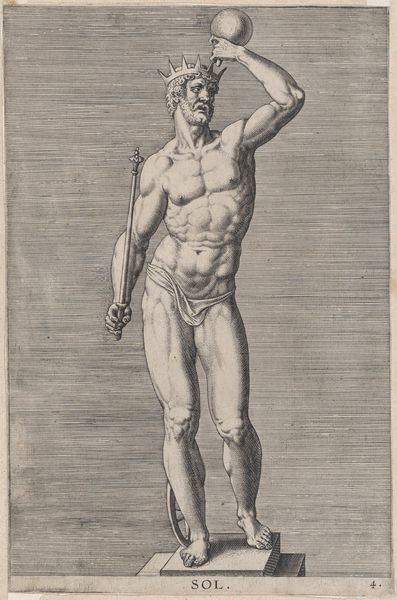
drawing, pencil
#
portrait
#
drawing
#
pencil sketch
#
mannerism
#
figuration
#
11_renaissance
#
coloured pencil
#
pen-ink sketch
#
pencil
#
academic-art
Dimensions: height 281 mm, width 180 mm
Copyright: Rijks Museum: Open Domain
Pieter de Jode I created this écorché, or flayed figure, print in the late 16th or early 17th century, a time when anatomical studies were increasingly valued. The image presents a body stripped of skin, revealing the musculature beneath. What we see is not just a feat of technical skill, but also a reflection of the era's shifting attitudes toward the body. During this period the body transitioned to something to be dissected, analyzed, and understood through empirical observation. Note how the figure is posed: standing upright, one hand on hip and the other holding a staff. He has a somewhat defiant posture, which moves beyond a mere medical illustration, and presents an image that carries emotional and perhaps even spiritual weight. Ultimately, this écorché print does more than display anatomical precision; it invites us to meditate on the corporeal and ephemeral nature of human existence.
Comments
No comments
Be the first to comment and join the conversation on the ultimate creative platform.
